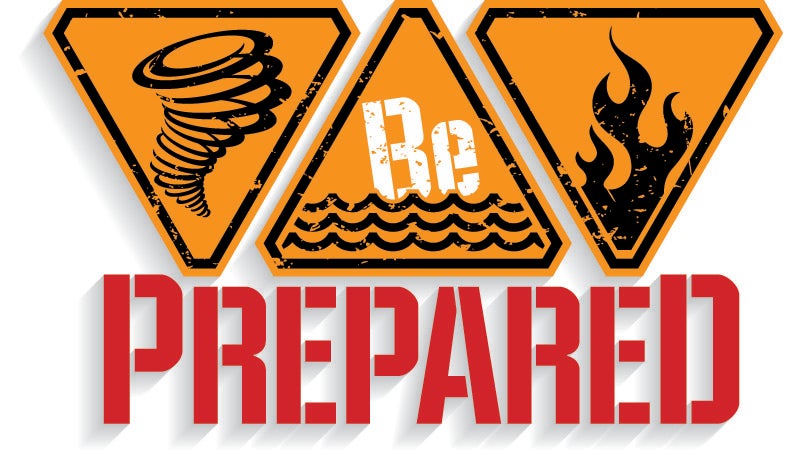Hurricane preparedness tips
Published 10:59 am Wednesday, September 2, 2020
|
Getting your Trinity Audio player ready...
|
LAPLACE – Many Louisiana residents have been through repeated storms throughout their lives, sometimes sheltering in place, other times evacuating.
Once the decision on whether to stay or go during a tropical event is made, preparations can vary greatly.
Without trying to have a “Captain Obvious” moment, some might need to be informed of things that might not been considered, especially to newer residents of Coastal Louisiana.
Whether staying or evacuating, Always secure loose items outside of your home, such as toys, flower pots, outdoor furniture and trash cans.
There should be nothing of importance left on the floor, or close to floor level. Use plastic storage containers along with storage bags, such Ziplock freezer bags, to protect shoes, books, pictures, videos or pantry foods on bottom shelves. Once you load the plastic bins and/or storage bags, place them high to avoid possible flooding.
Legal documents, insurance policies, family heirlooms and pictures should be stored in plastic containers and bags high off of he ground as well. Please consider not just protecting items, but bringing them on an evacuation.
Whether at home or on an evacuation journey, consider non-electronic, real books, games or playing cards. Power can fail, and chargers and power banks are not infinite.
Many Internet streaming service offer movie downloads. Consider loading one or more on mobile devices with movies or shows that can be watched if there is electricity but no Internet.
To extend access to electricity, invest in a power bank, which is available at most big box retail stores. This device is charged to capacity and then pass that charge along to other USB devices, such as a tablet or cell phone, when they run out of energy. Some power banks can charge multiple devices multiple times on a single charge.
If hunkering down at home:
- After shopping for batteries, water, hurricane snacks and other edibles, another major concern should be to wash and dry all clothes and dishes ahead of storm. There will likely not be a great opportunity to do so during the storm if utility services are interrupted. Also, there will be a lot to be washed afterwards.
- For utility interruption, cooking can still take place with use of a gas grill, smoker or standard charcoal grill. Clean the grill surfaces ahead of the storm and have fresh fuel for the grill such as natural LP gas or a bag of charcoal and/or flavored wood chips.
- Besides potable water for drinking, gather water that can be used for non-consumption. Sometimes, people will have trouble flushing toilets during major tropical events due to a variety of reasons, but there is no need to use drinking water to help flushing. Gather bottles or pitchers of water to help clear toilets, take a “cat bath” or clean up messes that occur during the storm.
- Consider purchasing a couple of battery-operated fans (camping fans). They are not powerful and should be used sparingly, but when the storm makes life hot, wet and miserable, the fan can provide a little relief when needed. Some come with lights attached, but remember, the more the lights are run, the less that the fan can be enjoyed.
A possible way around this light issue may already be sitting in your yard. Many people have solar lights staked into the ground along a walking path in the front of their houses. These lights store energy from the sunshine during the day, and produce light for a few hours each night after the Sun has gone down. Provided that the Sun was shining the day bring them inside at dark and use them as a gentle ambient light, minimizing the need to use any power to make needed light during a power outage.
If evacuating, most everyone would automatically think of clothes, medicines, toiletries, snack food and water for traveling, but some folks might forget charging USB cables on all their devices for use in their vehicle. Also, a power inverter that allows people to plug in a regular household AC power cable can be very useful on an evacuation, allowing usage any device that can be plugged into a house AC receptacle.
- For the residence being left behind, there are several things that can be done to make the return home experience better than in the past. By placing freezer foods and refrigerated foods into large, thick trash bags, then even if the power goes out and the food goes bad, the after-Hurricane clean up is much easier and much less traumatic. If there was no power interruption, and the food is determined to still be good, simply remove the items from the trash bag and replace into the freezer or refrigerator.
- There are several publicized methods on how to determine is power was lost during the evacuation. One of the easiest is to pour a bunch of ice cubes into a large glass. Just place the glass into the freezer, and check the glass upon return from evacuation. If the ice cubes melted and re-froze, then it must be conceivable that the food, though frozen solid, might have also thawed then been frozen again. If there is already a large block of ice in the freezer (like a jug of frozen water), open the container and just place a penny on top of the ice water. If the block unfreezes and refreezes, the penny will have dropped below the top, one must decide whether or not to throw away their food. But one of these two easy and free water tricks should be able to make that decision easier.
There is an organizational tool used in some corporate trainings called “The Earthquake Test,” which asks the question, “If an Earthquake struck and swallowed up all of your possessions, which things would you be compelled to spend money on to replace?” These are the only things you should keep.
If you would not spend money to replace something, then you should give away, barter away or throw these things away.
But keep in mind, some things are irreplaceable, and throwing away family heirlooms or wedding photo albums would not be a great a idea, especially if you wanted to remain married, or remain a part of that family.






